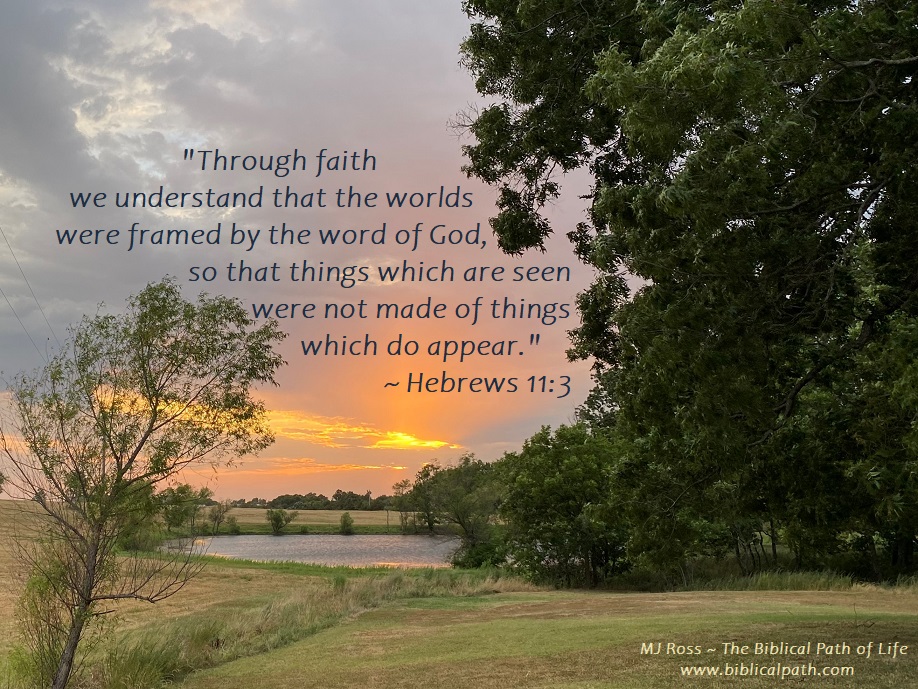
Key Verse
For the law having a shadow of good things to come, and not the very image of the things, can never with those sacrifices which they offered year by year continually make the comers thereunto perfect.
—Hebrews 10:1
Key Verse Thought: After reading the Key Verse, consider what a shadow is (an outline, an image with no definition, a similarity to a real object, etc.). Remember the sacrifices that had to be offered in the Old Testament by the priest to cover the sin of man until a perfect sacrifice could be made. Those sacrifices had to be made every year – but their sins were never taken away; only covered for another year. In this lesson, we will learn how those sins were taken away.
Emphasis: We are to recognize that the Old Testament tabernacle and religious system was only a shadow of what God had planned. Jesus was the fulfillment of God’s plan. All those who believed by faith – from the Old Testament through to today, will be saved. Once believing in Jesus, by faith, Christians are to live right.
Lesson Summary: Hebrews is the first book in the fifth, and final division, of the New Testament. Although the author is undeclared, many agree Paul wrote it. It was written specifically to the Jewish Christians, but is very relevant to Gentiles Believers as well. As we began Hebrews last week, we learned that after speaking to His people in many different ways during the Old Testament timeframe, God had then chosen to speak through His Son, Jesus. We also learned that Jesus is the High Priest. As we begin today, the writer of Hebrews began with a summary of what had already been taught in the first half of the book.
In this lesson, we learn that the tabernacle of the Old Testament was to be a shadow, or a prefiguring of something perfect. That shadow was to give God’s people a glimpse of heaven. Not only that, but also each part of the tabernacle (Temple) was to reveal Jesus – including the sacrificial system. We will find out how Jesus was revealed in the different parts of the tabernacle. The tabernacle and the sacrificial system was to continually remind the Jewish people of the promise God had made of sending One who would restore the severed relationship between man and God.
After remembering the stringency of the Old Testament sacrificial system, we will learn another reason the book of Hebrews was written: to help the Jewish Christians understand that Jesus’ death on the cross was the promised sacrifice that they had been looking forward to all of those years. They were to believe by faith. Moreover, many of the men and women from the Old Testament did believe by faith – and were saved. We will remember many as they are listed in Hebrews chapter eleven. With the encouragement that so many have believed and lived by faith, Christians are to be encouraged by them: for they are called “so great a cloud of witnesses.” Finally, Christians are encouraged, again, to run the race by living a godly Christian life.
Y3Q4 – Lesson 5 Questions
Y3Q4 – Lesson 5 Children’s Worksheets
If you are teaching this to children, the following is a craft idea to help them remember this lesson:

We made a coloring book of different Old Testament people mentioned in Hebrews 11: the chapter of many faithful.
The Biblical Path of Life – Year Three, Quarter Four is available through Amazon.





